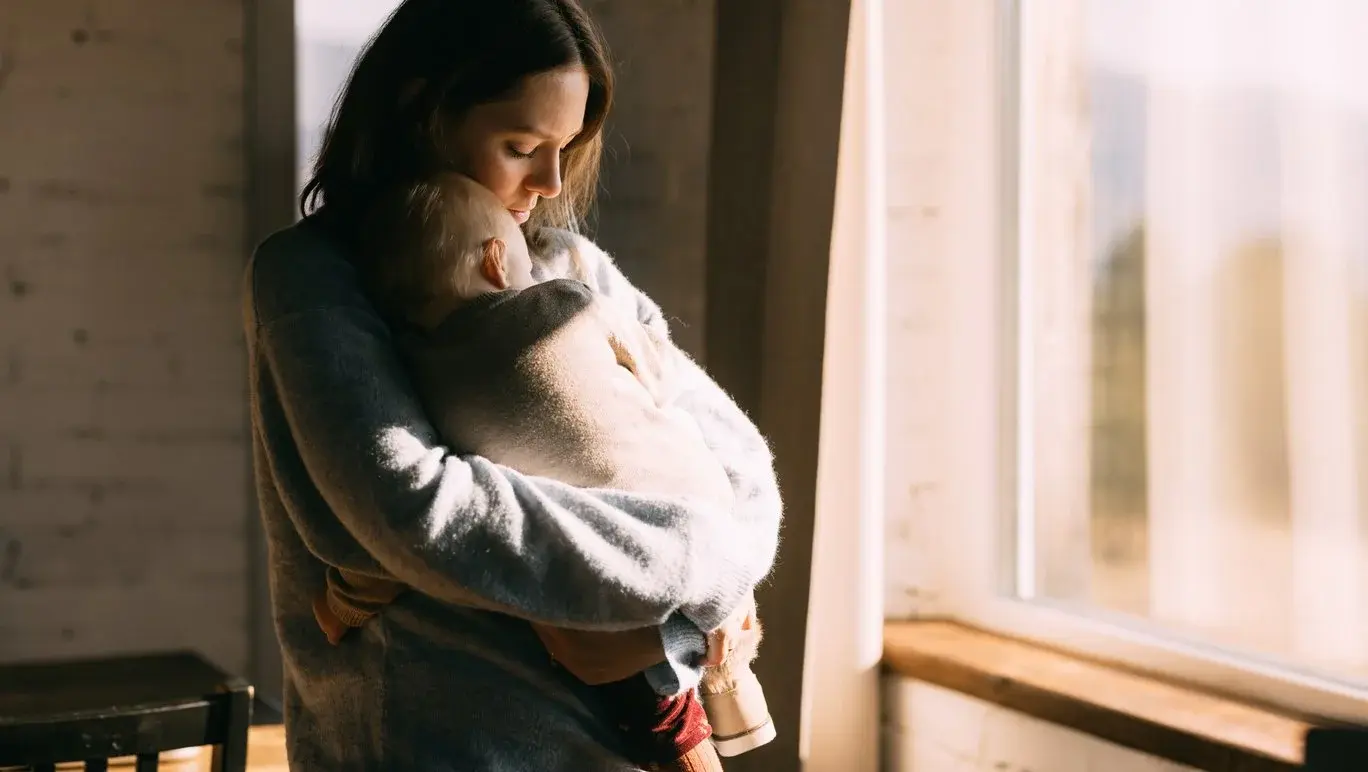Baby blues: hormones and mental wellbeing

Having a baby can be a largely positive time filled with love and excitement. But let’s be honest, it can also feel pretty overwhelming and exhausting, especially for first-time parents.
Even though this time is all about new beginnings, it’s important to remember that experiencing sadness, anxiety, anger, and even confusion, is completely normal. The tricky part? It can be hard to know whether you’re just dealing with the ‘baby blues,’ struggling with depression, or simply feeling the effects of lack of sleep and exhaustion.
This article will help you understand what the ‘baby blues’ are, what causes them, and when it’s time to ask for help.
What are the baby blues?
The baby blues, also known as ‘postpartum blues’ is something many new mums go through. In fact, up to 80% of women experience them.
It’s that wave of sadness and tearfulness that typically hits between the third and fifth day after giving birth. These feelings are thought to be a normal response to the rapidly changing hormones postpartum. The labour and birth experience may also play a role.
Thankfully, the baby blues don’t last long and usually don’t need any special treatment.
Common symptoms of baby blues
The most common symptoms of the baby blues include:
- Mood swings
- Having a ‘short fuse’
- Teariness
- Difficulty sleeping (unrelated to your baby’s sleep)
- Feeling overwhelmed and/or anxious
Baby blues vs postnatal depression
If you have ‘baby blues’ you may feel down or emotional, but these feelings usually pass quickly (within 1-2 weeks) with no special treatment.
In postnatal depression, symptoms last longer (more than 2 weeks), may be more severe, and often interferes with your ability to function normally. Unlike ‘baby blues’, postnatal depression doesn’t usually go away on its own. If you’re struggling to cope, especially when you're juggling recovery and caring for your newborn, it’s a good idea to reach out to your healthcare professional.
How baby blues impacts mental wellbeing
The baby blues themselves are not harmful to mental wellbeing, although it’s still important to have help and support during the few days of feeling unsettled. Unlike ‘baby blues’, postnatal depression lasts longer, is more severe, and doesn’t usually go away without help. This is the condition that has a significant negative impact on mental wellbeing and needs professional help to get through.
When to see a doctor/health professional
If the baby blues don’t shift after a few days, it’s important to let your health professional know as it may be a sign of developing depression or anxiety. Certainly don’t leave it more than a week or two if you have ongoing symptoms.
The bottom line:
The baby blues is a common and normal experience for many women after giving birth. Changing hormones, the labour and birth experience, as well as many other factors, play a role. The baby blues usually only lasts a few days and doesn’t need treatment. Unlike the baby blues, postnatal depression doesn’t usually go away on its own and needs professional help. If you’re having thoughts of self-harm or suicide, or feel the baby would be better off without you, call Lifeline on 13 11 14 for immediate support.
Related:
Reviewed by Healthylife Advisory Board February 2025
This article is for informational purposes only and does not provide medical advice, diagnosis, or treatment. Any information published on this website or by this brand is not intended as a substitute for medical advice. If you have any concerns or questions about your health you should consult with a health professional.
